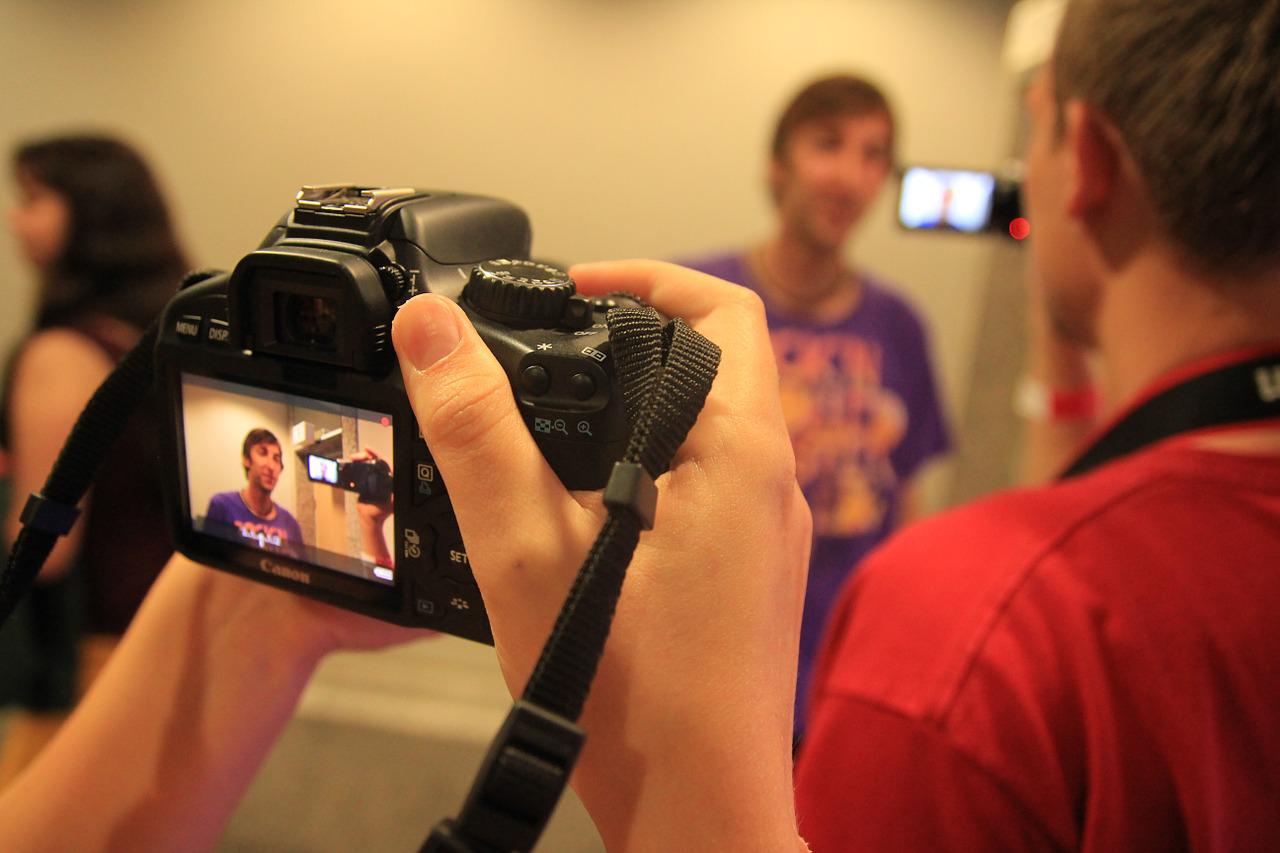Colombia-MICE is part of the Pelecanus Travel Group. We are located in Bogota, Colombia. We are specialized in corporate travel and all services around Meetings, Incentives, Conferences, and Exhibitions.
Regardless of what type of industry your event is intended for, whether it is a small meeting of no more than 12 people or a large, world-class conference, organizing your event is the be-all and end-all! There is no type of event that does not require extensive planning and organization.
From setting the goals of the event to set an ideal budget to promoting the event itself, there are endless components to consider from the start.
Content
How to organize an event?
In order to make any event a success, you should follow a few crucial steps.
Below we offer a list of the different phases and options to consider when planning a meeting, event or congress.
Define clear goals and targets in advance
The planning phase is very important as it forms the foundation of the event.
You should ask yourself all questions with a „W right from the start “. How, when, who, where, why, etc.
- The reason for the event.
- Objectives of the event (qualitative and/or quantitative) and measurement criteria.
- The information, service or product to be conveyed and the purpose for which it is to welchembe conveyed.
- Who is the target group and what is the best way to reach them?
- Review of resources and their allocation.
The above list is only an excerpt from a complete event planning. Motivation is fundamental because it is the reason for the existence of the event and the goals are the reason for the success of the event.
How do you set the goals of an event?
Goals are not always easy to set. However, it is a crucial factor and should be treated with due care. It’s not just about making assumptions about the outcome, it’s also about getting clear on how to get there so the event runs smoothly.
The first step in setting goals is to determine the type of event to be organized.
This can vary greatly because you need to consider the different event options. Is it a meeting with a few participants or a large conference with thousands of participants or a trade show that lasts up to 3 or 4 days?
Once you have determined the type of event, you can take the following steps to define the goals:
- Specify the goals without generalizing or leaving any part open.
- The goals should be measurable. It does not matter whether the objective is qualitative, quantitative or mixed. Measurement criteria and their implementation can sometimes be difficult, do not be discouraged.
- Work out the goals hierarchically, starting with the main goals first and then setting secondary goals or sub-goals.
- The objectives should be specified in terms of the target group and the type of event. For example, selling and buying X products, acquiring specific knowledge, improving the cohesion of a workgroup, etc.
If the goals are defined wisely, the event will be easier to develop. However, achieving that goal is a different matter.
Budget planning in the planning process of an event
After setting goals, you need to create a budget for your event. This is seen as an essential step in organizing the event as it clarifies other aspects of the event.
With meticulous budget planning, surprises and budget overruns can be avoided or, in some cases, better absorbed. The budget is the oxygen of an event.
Plan each phase and associated budget in advance, and update the budget as changes occur.
Note that a budget consists partly of rough estimates. It is therefore not always an exact science. If you plan with 5,000 participants, but only 3,000 come, this can present some difficulties. However, budget planning leaves a certain amount of leeway and reserves. Good budget planning also always includes different scenarios.
How do you set the budget for an event?
A top-down approach is recommended here. The allocation of resources can first be made according to importance, size, type or other key factors. So for example: renting the venue, transport, accommodation, wages, meals, etc. As soon as the actual costs are known, they can be included in the budget planning.
The main blocks mentioned above can then be further refined in a subsequent step. For example: meals in breakfast, lunch, dinner on day 1, etc.
Finally, it is wise to set aside part of the budget for emergencies in case unforeseen costs arise.
Choosing the place and time of the event
It is now a matter of selecting the location (country, city), the venue (event center, hotels) and the time of the event.
- Think carefully about the date, ideally it should not collide with a public holiday, as this will be reflected in the number of participants. Christmas is probably not a good time for a trade fair.
- In addition to the exact day, you should also think about the time of year. Studies show what time of year is best for holding events. So the preferred months are usually May, October, June and November (in that order).
- Depending on the destination and industry, the costs for flights, travel and hotels are important for the participants. Depending on the type of target group, the type of destination should be considered. The financial and pharmaceutical sectors have more generous budgets than, for example, the catering industry.
- Accessibility by all means of transport (private transport, public transport, walking) must be taken into account for the comfort of the participants.
- Brand and image are very important. Communicate the values of the organization and the event.
- For the number of participants, venues should be chosen that are neither too large nor too small. Imagine a football stadium with only 20% spectators. It becomes difficult to create a good mood.
- Other aspects such as lighting, sound reinforcement and premises at the event location are also decisive for the perfect course of the event. It is important to ensure that the room covers all needs.
Building an event team
The success of an event stands and falls with the management or the management team. The delegation of tasks is of great importance. A simple yet highly effective guide learned in the Swiss military:
C – Command
C – Control
C – Correct
C – Consequence
This process is easy to use. However, a single application is not enough, this process should be continuously repeated.
Your organization may already have established roles for managing event-related activities. It should always be clear who is responsible. The worst form of organization is that everyone is responsible for everything and nobody for nothing. This is öfters the usual form of organization in politics, and we know the consequences of this.
Possible teams for organizing an event
- marketing team
- Relations and Communications Team, Public Relations
- project Manager
- Coordination and logistics team
- planning team
- design team
- finance team
Developing an agenda for an event
Plan the agenda from the start! No idea or activity is too small to neglect. Topics such as destination, budget, speakers and activities should be included in the program to ensure everything runs smoothly and on time from the preparation to the execution of the event.
There is no obligation to have the program ready from the start, let alone before announcing the event and expected attendees, therefore changes to dates can be made after the marketing and registration phase has begun.
However, both participants and visitors want to know what to expect at the event and when. Therefore, it is best if you can provide the basic (confirmed) schedule in advance.
Promotion and branding for the event
Would you like your event to have a high profile and a large number of participants? Like any other event, it has to be advertised in some way.
Sometimes the organizers assume that if the event is good, the participants will come back on their own. A positive experience indeed influences whether attendees come back, but events always need to be promoted.
How can an event be funded?
There are many common ways to promote a brand and its events.
Preparing ads, calling the media, contacting sponsors and speakers are of great help in advertising. Technical aids are not only inexpensive but also have an unimaginable range, e.g. B. social networks, whose potential can be fully exploited.
- Run email campaigns.
- Creation of a communication calendar with the participants, in which permanent publications are made.
- Take advantage of social media, from hashtags (related to the event) to using stories or paid advertising.
- Send reminder messages to remind event registrations, dates and times.
- If your budget allows, you can offer a discount to those who sign up first.
- Create campaigns that encourage participation from people who may be interested in the event.
- Use your brand.
- Present good and recognized speakers.
- Get the public involved. You can strengthen your brand with photos or videos of everyday life and the structure of the event.
- Create promotional videos or ads that can be used in any media.
- Encourage attendees and speakers to promote the event through networking campaigns.
Involve external participants in the event.
If you are organizing a large or global event, you will most likely involve other industry professionals as well. With their help, the event becomes more recognized and more interesting for your participants. So, having compiled a list of potential partners and guests, you should confirm their presence. Speakers, sponsors and exhibitors are the best ways to add value to the event.
Possible participants for the organization of the event
The type of participants may vary depending on the type of event.
- Speakers: Experts on the topic who have extensive knowledge.
- Sponsors: Look for sponsors whose profile and clients match that of the event.
- Exhibitors: At trade fairs, the exhibitors are the most important participants. An exhibitor not only plays the role of sponsor by bringing visitors to the event, but also can be a great ally to promote the brands involved and the shared industry information.
Use technological tools
Today, more than ever, technology is a key ally at any event, both for the organizers and the participants. A good flow of information as well as the possibility of organization and networking is expected nowadays and is hardly possible without the appropriate technology.
There are big differences between the use of technology in in-person events and virtual events.
Technology in in-person events
Technology can be used for almost any activity today. Registration, payments, networking, organization, advertising and much more is already standard for most events. Don’t reinvent the wheel, look at what’s already available on the market and what’s suitable for your event.
Technology in virtual events
Although all events were canceled or held virtually during the pandemic, these forms cannot replace face-to-face events. We, humans, are social creatures and seek personal contact. This is still very important in the business world and in some countries, it is the basis of every business. However, virtual events are a good addition.
Today some platforms connect thousands of people in different parts of the world. Whether for participants or speakers, a virtual event can significantly increase the number of participants or bring a top speaker to the event due to the cost advantage.
Measure the success of your event
A proverb from statistics says: “What gets measured gets done”.
An event cannot be developed further without clear measurements and key figures, as future resources cannot be allocated properly.
- A thorough analysis of the data collected, be it the number of tickets sold, the number of contacts made, the number of services or products sold, etc.
- Consider everything that was reported on social media before and during the event. Evaluate the reach of hashtags, photos and videos posted, follower growth, impressions on your website, etc.
- Analysis of the behavior of the participants: this point is fundamental for the development of the event in order to identify needs.
- Be open to criticism. Feedback is always a good way to improve, e.g. B. through surveys.
- Check that all financial issues are properly resolved, both with employees and external service providers such as catering and logistics.
- Organize post-processing of all evaluated key figures and draw conclusions and inputs for future measures.
Spice up your event
A very effective way to engage with the audience and grab their attention is by hiring trendy outside workers. For example, hire renowned speakers, industry influencers, well-known personalities, presenters, public speakers, and even comedians or actors. You can also find booths of well-known brands at the destination that make a difference, for example in the catering and beverage service.
Why is it a good idea to organize a corporate event?
As mentioned earlier, organizing a successful and profitable event is not an easy task as there are many aspects to consider.
However, planning a meeting or event can be an excellent tool for any business, primarily because it is used as a method of strategic communication. For this reason, most organizations, companies, and companies claim to hold one or more events annually.
There are definitely many benefits that a good event can bring. However, caution is advised because a bad event can also lead to negative results.
The benefits of a corporate event
Below you will find a short list of the most important benefits that an event can bring to you and your company.
Increasing awareness and trust in the organization’s brand
An event generates communication that introduces your company’s services or products directly to your customers or potential customers. In addition, networks can be formed, which in turn can cause a network effect. A good event also creates trust between the organizer and the participants.
Events as a vehicle for business deals
There are events, that aim to bring buyers and sellers together. Take advantage of this and show the company from the best side. Depending on the industry and geographic customer proximity, you can organize a local event to advertise to potential customers. For example, a farm can organize a regional pumpkin exhibition.
Promotion of the company’s interpersonal relationships
Even in a technology-dominated world, personal connection is still a very powerful factor. Who concludes contracts for large sums without knowing their counterparty personally?
In terms of human relationships and contacts, events and meetings are great allies for perfect networking, since you get to know both clients and other professionals and potential allies for the future personally and more directly.
Maintaining the company’s internal relationships and working environment
An event not only improves the company’s relations with the outside world but also provides an opportunity to improve relations between the organizers and employees.
Creating performance incentives in the company
How can an event motivate the organizers and their staff?
At any event or session (especially a meeting or even an incentive trip) there is an opportunity to reward good work, achievement, overcoming challenges, or achieving goals by an individual or a large team.
- Show public appreciation for achievers and role models.
- A festival or celebration can be a great way to say thank you and celebrate.
- In general, celebrate successes. The possibilities are countless.
Create entertainment
Occasions in a business environment do not always have to be boring. Create experiences and lasting impressions. Who doesn’t have a childhood experience at McDonald’s and associates those visits with positive feelings?
Close to accomplishing such a feat, you are already on the road to victory.




